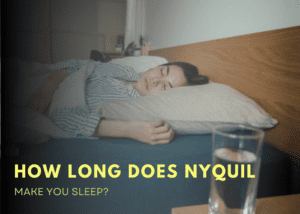Do you have disturbed sleep caused by your partner’s snoring? Is there an easy solution to prevent you from losing sleep without sleeping in a different room?
Use earplugs as a first step. Listening to pink noise may help you drift off to sleep while suppressing the snoring noise. Have your partner sleep in a different position to prevent snoring. Get your partner to cut back on alcohol before bedtime.
Snoring can be a frustrating and disruptive problem, both for the person who snores and for their bed partner. If you’re struggling to sleep through your partner’s snoring, you’re not alone. However, there are a few strategies you can try to help you get a better night’s rest.
First and foremost, it’s important to address any underlying medical issues that may be causing the snoring. Conditions such as sleep apnea and nasal congestion can contribute to snoring, and treating these issues can often help alleviate the problem. It may be helpful to speak with a healthcare professional or a sleep specialist to determine the cause of the snoring and explore potential solutions.
In addition to addressing any medical issues, there are a few simple strategies you can try at home to help you sleep through the snoring. One option is to use earplugs or white noise to block out the noise. Earplugs can be especially effective if the snoring is particularly loud, while white noise can help to drown out the sound of the snoring and create a more peaceful sleep environment.
Another strategy is to change the sleeping position of the snorer. Lying on the back can sometimes cause the tongue and soft palate to collapse to the back of the throat, leading to snoring. Encouraging the person to sleep on their side instead may help to alleviate the problem.
If the snoring is disrupting your sleep and you’re unable to find a solution, it may be helpful to sleep in a separate bed or bedroom. While this may not be an ideal solution, it can help you get the rest you need until a more permanent solution is found.
It’s also worth considering lifestyle changes that may help to reduce snoring. These can include losing weight, if applicable, avoiding alcohol, sedatives before bedtime, and quitting smoking. Additionally, reducing stress and establishing a regular sleep schedule can also be helpful.
Ultimately, the best approach for sleeping through snoring will depend on the individual situation. By working with a healthcare professional and trying out different strategies, it’s possible to find a solution that works for you and allows you to get the rest you need.
How to ignore snoring without earplugs
If you are trying to ignore snoring without earplugs, here are a few things you can try:
- Use a white noise machine: A white noise machine can help to mask the sound of snoring and make it easier for you to sleep.
- Use a fan: A fan can help to create background noise and make it easier for you to ignore the snoring.
- Try sleeping in a different room: If possible, try sleeping in a different room or on a different bed. This can help to reduce the impact of the snoring on your sleep.
- Use relaxation techniques: Try using relaxation techniques such as deep breathing, progressive muscle relaxation, or visualization to help you relax and sleep better.
- Consider talking to a healthcare professional: If the snoring is persistent or severe, it may be a good idea to speak to a healthcare professional for further evaluation and treatment.
- Try sleeping on your side: Sleeping on your back can cause your tongue and soft palate to collapse to the back of your throat, which can cause snoring. Try sleeping on your side to help reduce snoring.
It is also important to maintain a healthy lifestyle, as factors such as obesity, alcohol consumption, and smoking can contribute to snoring.
How can I sleep with my partner snoring?

It can be difficult. Try listening to music through earbuds until you drift off to sleep. Pink noise is a great way to drift off to sleep.
What is pink noise? It’s a background noise that stops you from waking up from unexpected jarring noises. Pink noise could be the sounds of waves lapping a tropical beach or the pitter-patter of rain on a window.
If earplugs and listening to music are not the answer, then you need to speak with your partner seriously and jointly find a way they can sleep quietly.
Often small lifestyle changes can make a big difference to prevent snoring, such as not drinking alcohol during the evening before you sleep.
Support your partner to live a healthier way, exercise every day for just 30 minutes, a brisk walk can work wonders for increasing your fitness levels and dropping a few pounds.
In the interim, you can try nasal strips, and there are positive results reported from the use of nasal strips.
Nasal strips make breathing through your nose easier by opening the airway to allow you to breathe through your nose and not the mouth.
If you can stop your partner from snoring, then you only have two choices, learn to deal with the snoring or sleep in a different room.
Sleeping in a different room is the final straw for many of you, so you need to find a way that is acceptable to both of you that allows the non-snoring partner to be able to sleep.
If your partner snores, but it’s light and not really disturbing you, gentle snoring can be quite comforting in some respects.
However, the problem arises as the decibel levels increase to such a crescendo that you wonder if your neighbors can sleep through the noise, let alone you.
So, what’s the remedy? How can you sleep through the night while your partner sleeps soundly but raises the roof every night?
Foam earplugs are very effective at blocking noise out. You will still be able to hear a little background noise, but in general, foam earplugs can be the answer to your problems.
The foam earplugs expand to the shape of your ear and are comfortable to wear through the night, which solves the problem.
If earplugs are not the solution for you, you need to learn how to sleep through snoring to wake rested the following morning.
If the snoring is manageable, you could try going to bed earlier than your partner, so you are sleeping soundly before the evening’s chorus starts.
Clearly, sleeping before your partner is ok if the snoring is not so loud, but you will only wake for real rip-roaring snoring.
How can I permanently stop snoring naturally?
You will need to address the core reasons that make you snore and acknowledge that you need to take action for your health and your partner’s sanity.
Finding a way to sleep and not snoring can be tricky if you are facing the problem alone. Your first step should be to change your sleeping position, sleep on your side, or partly in a prone position.
Often this is enough to clear your airway and prevent the soft tissue from collapsing in your throat.
Avoid sleeping on your back at all costs. Back sleeping could see you dropping back into your old snoring habit. Your goal is to sleep quieter.
Lose weight; most people who snore are a few pounds overweight. Alter your diet slightly, and eat smaller portions to shed a few pounds.
Change your pillow; there are pillows on the market that can help you to stop snoring. The pillows are made from memory foam and support your head and neck to maximize your airway opening.
Keep hydrated and keep the air in your bedroom humid. Dry air in the bedroom through heating systems and air conditioning dries the air and makes your airways dry and irritated. A humidifier will help you to breathe easily and prevent snoring.
Does snoring shorten your life?
You may assume that snoring is just an irritating symptom of being overtired, but the truth is snoring can be a precursor to an underlying health problem.
If you snore frequently and the snoring is loud, you should seek medical advice. Snoring can lead to sleep apnea which has serious consequences if not addressed and acted on.
If your partner stays awake long enough, who knows what the culmination of months of sleepless nights could result in!
Why do people snore so loud?
Numerous reasons make people snore. Being overweight is a contributing factor to snoring. Excessive alcohol consumption can make you snore as you sleep heavily.
If your partner sleeps on their back, this can cause snoring also. Most folks who snore tend to sleep on their back. While sleeping on your back is normally comfortable and safe to sleep for some people, the anatomy of their mouth causes snoring.
Some people snore when they sleep on their back. The tongue collapses towards the back of the throat, it’s not enough to cut off the airway, but the exhaled breath causes the soft tissue to resonate and create the snoring noise.
If this is your partner, you will need to find a way of sleeping next to someone who snores, which can be challenging and frustrating.





